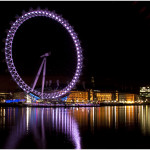Copenhagen vs. London
When it comes to looking at the comparisons between living in Copenhagen and London, the first thing that’s going to be on everybody’s list is the cost of living.
According to real time data analysis website, Expatistan, living in Copenhagen is 27% cheaper than living in London. Now, that’s all very well, but how does that actually break down into day-to-day living expenses?
As we all know, it’s not all about the money – quality of life also has a big impact when you’re considering one city against another.
So, with that in mind, here’s our London vs. Copenhagen list that puts the two cities head to head…
Cost of living
Property Rentals: OK, let’s look at renting a property. Copenhagen definitely wins hands down.
If we look at an average 85 square metre furnished apartment in a more expensive area of both cities, you’ll be paying a 40% higher price in London – at £2,471 vs £1,277.
Essential Utilities: Utility bills also don’t do so well in London, with heating, electricity, gas, water, etc. for the above mentioned property coming in at £175 per month in London against £130 in Copenhagen – a stiff 26% higher in London.
If you want to employ a cleaner, however, London wins hands down, with an average cost of £11 per hour vs £16 in Copenhagen – a massive difference of 47%.
Food: London wins the race here too, with food costing around 12% more in Copenhagen than it does in London. With a little bit of shopping savvy, it’s possible to reduce your monthly grocery bills even further.
The massive rise in popularity of the budget foodstores, Lidl and Aldi, has created a supermarket price war that benefits all of us. Another way to save on food shopping is to join cash and carry stores such as Makro and Costco. If you have the ability and storage to purchase in bulk, you really can make massive savings.
Transportation: Here, there’s a massive difference between the two cities, with Copenhagen winning hands down. A monthly ticket for public transport here will set you back £44, against £128 in the UK capital using the underground tubes and London buses – that’s a scary 65% difference.
Personal Care: London is the cheaper place in which to purchase items from the pharmacy, toilet rolls, toothpaste, etc., with prices around 25% more expensive in Copenhagen than London.
Entertainment: In general, Copenhagen is cheaper by around 16%, except when it comes to eating out. London bills definitely cost less by around 15-28%, depending on where you eat.
Quality of Life
When it comes to comparing the two cities, it’s not all about the cost of things. Average salaries are fairly similar in the two cities, with Copenhagen being slightly higher at £2,075 per month, versus London’s £1956.
But Copenhagen has a significantly lower unemployment rate by 2.3%. It also has far less inhabitants which, depending on your point of view, could be a good thing or a bad thing.
The Weather: Let’s face it, Copenhagen is cold – really cold – and whilst London isn’t exactly tropical, there’s a significant difference between the two cities average temperatures, with Copenhagen having a chilly 8 degrees against London’s 11 degrees.
London also has significantly fewer rainy days. However, Copenhagen in the spring and summer is a delightful place to be, with wonderful parks, communal barbeques, and various outdoor activities.
London doesn’t lag far behind in this respect, with some great summer fun to be had, including festivals, carnivals, and various locally organized events in its numerous parks.
Come the winter months, in Copenhagen it’s necessary to endure cold, snow, and many, many hours of darkness. London can have it’s grim winter days too, but there’s nothing to beat those magical times when the sky is crystal blue, frost tinges the pavement and trees, and the sun warms with its promise of summers to come.
Healthcare: This is one area that Copenhagen really does score highly, thanks to high taxes – meaning plenty of money to spend on healthcare, as well as a far smaller population than London.
In the UK capital (and the whole of the country), healthcare is provided by the National Health Service. This is paid for by National Insurance, which is a tax paid by everyone in work.
The NHS is a longstanding and globally revered healthcare system. However, some long waiting lists have seen many people decide to take out private health insurance to ensure that, if they need any treatment, they don’t have to wait.
Opening Hours: London is a pretty much 24/7 city. You can shop, party, or do virtually anything you choose at any time of the day and night.
Copenhagen, on the other hand, closes down at 15:00 on a Saturday. This, depending on your point of view, is a good thing or a bad thing.
Sure, you can’t go shopping, but instead the Danes have taken this to be a day for exercise, brunch, and visiting all that the city has on offer.
Starting a Family: Denmark is light years ahead of the UK in this respect, with the utmost importance being put on couples having children.
To this end, fathers are granted fully paid paternity leave for three months. In addition, nursery places are heavily subsidised and childcare is amazing.
What this means in practice is that mothers can easily continue to work, without having to shell out huge amounts of their salary on childcare costs.
In Conclusion
It’s very difficult to simply give a blanket “this city is better than that city” result when it comes to London versus Copenhagen.
After all, there’s got to be a reason why Denmark consistently scores very highly in the UN’s World Happiness Report. Both cities have their good points and bad points – and both have a wonderful amount of history and culture.
The Danish Government ploughs an enormous amount of effort into ensuring Copenhagen is a great place for its inhabitants, but London too has undergone an amazing transformation over the last few decades.
As to which city is better to live in, it really does boil down to a matter of personal choice – a decision that really can only be made by the individual.








